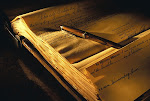——————————————————–
John F Kennedy
President Kennedy was assassinated on 22 November 1963 in Dallas, Texas. According to the Warren Commission established to investigate the assassination, a lone gunman, Lee Harvey Oswald, killed the president, but there has been consistent speculation ever since that Kennedy’s death was the result of a conspiracy. He was born John Fitzgerald Kennedy on 29 May 1917 in Massachusetts, into a wealthy and political Irish-American family. Educated at Harvard University, he graduated in 1940. Following naval service in the Pacific in World War Two, he entered politics in 1946, spurred on by his ambitious father Joseph, and won election as a Democrat to the US House of Representatives. In 1952, he was elected to the Senate.
In 1960, Kennedy won the party’s presidential nomination and defeated Richard Nixon in the subsequent election that same year. At 43, he was the country’s youngest president as well as its first Catholic head of state. He presented himself as a youthful president for a new generation. His wife Jackie added glamour to the presidency, although it was later revealed that he had numerous affairs. Kennedy’s years in power were marked in foreign affairs by Cold War tension, together with a rhetorical commitment to introducing domestic reforms – most of all to expanding the civil rights of African Americans.
He inherited a plan that was devised under the preceding Eisenhower presidency for anti-communist Cuban exiles in the US to invade Cuba and overthrow Fidel Castro’s government. In April 1961, the ‘Bay of Pigs’ invasion ended in failure. According to some historians, this led the Soviet Union to conclude that Kennedy was a weak leader, and that they could get away with installing nuclear weapons on Cuba in 1962. The Cuban missile crisis ensued. After a thirteen-day stand-off that brought the world to the brink of nuclear war, Soviet leader Nikita Kruschev withdrew the weapons and Kennedy’s reputation was restored. Domestically, Kennedy oversaw the desegregation of the University of Mississippi in 1962, and of the University of Alabama the following year – despite each state’s political establishment opposing this policy. More substantial legislation to encode civil rights was not passed, however, until the subsequent administration of Lyndon Johnson (1963 – 1969), who was Vice-President and acceded to the position of President on Kennedy’s assassination.
Source = BBC History
WashingtonConfidentialOctober 13, 1961Dear General Taylor:
I should like you to proceed to Saigon for the purpose of appraising the situation in South Viet-Nam, particularly as it concerns the threat to the internal security and defense of that country and adjacent areas. After you have conferred with the appropriate United States and South Viet-Namese authorities, including the Commander-in-Chief, Pacific, I would like your views on the courses of action which our Government might take at this juncture to avoid a further deterioration in the situation in South Viet- Nam and eventually to contain and eliminate the threat to its independence.
In your assessment you should bear in mind that the initial responsibility for the effective maintenance of the independence of South Viet-Nam rests with the people and government of that country. Our efforts must be evaluated, and your recommendations formulated, with this fact in mind.
While the military part of the problem is of great importance in South Viet-Nam, its political, social, and economic elements are equally significant, and I shall expect your appraisal and your recommendations to take full account of them.
Sincerely,
JOHN F. KENNEDY
The White House
Washington, D. C.Confidential
John F. Kennedy – Presidential Recordings
In July of 1962, John F. Kennedy began secretly recording what would become roughly 260 hours of meeting and telephone conversations. The Kennedy collection of Presidential Recordings consists of Meeting recordings and Dictabelt recordings. The Meeting recordings are made primarily of conversations in the Oval Office and Cabinet Room. The Dictabelt recordings consist primarily of telephone conversations with occasional dictation included.
A finding aid is available to help navigate the Kennedy recordings and is available from our Presidential Recordings help page. If you already know which recordings you would like to listen to, or if you would simply like to browse the collection please use the links below to navigate.




